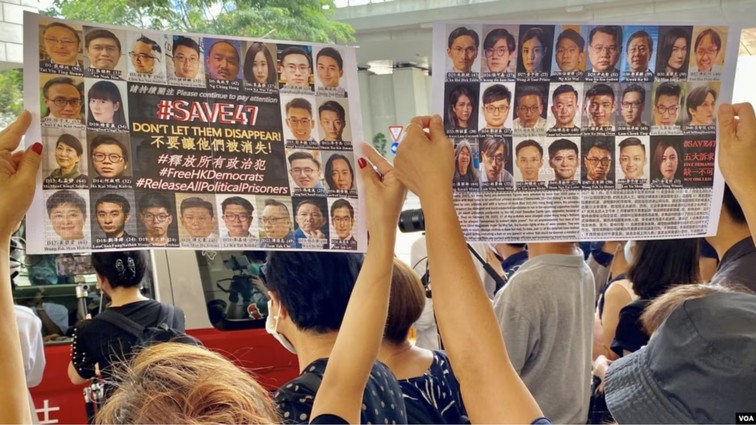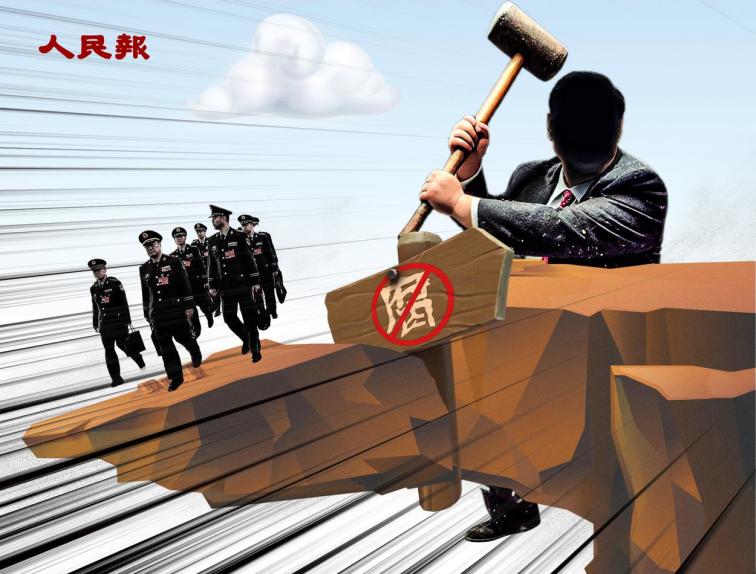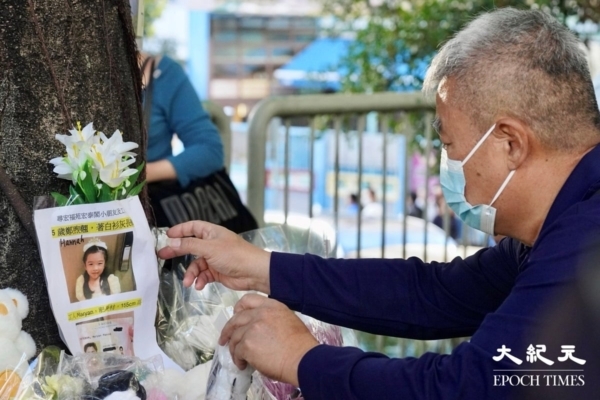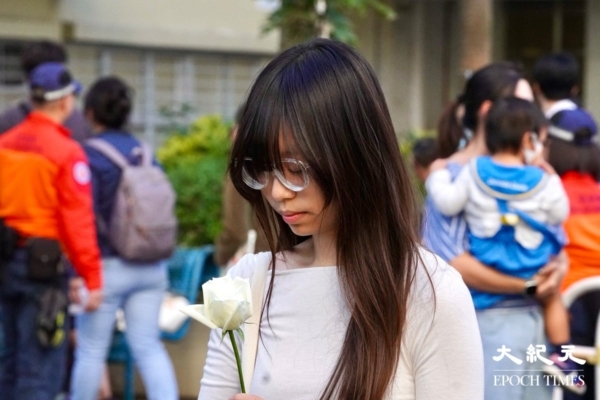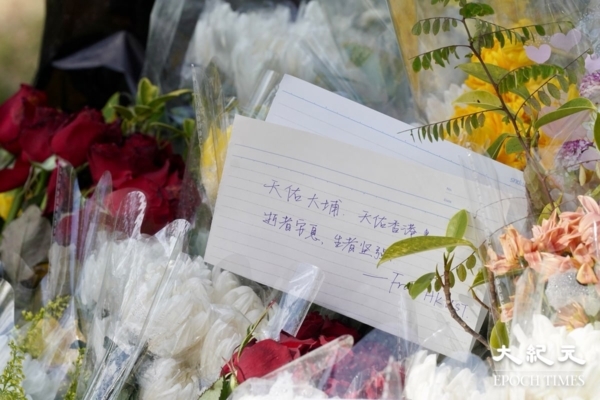China
Popular news
Hong Kong's '47 People Case': 12 Appeals Rejected, Human Rights Groups Urge Release
On Monday, February 23, the Appeal Court of the Hong Kong High Court dismissed the appeals of 12 convicted defendants in the democratic primary '47 People Case' concerning their convictions or sentences.
Xi Jinping Is Near Death, Leaving a Political Will and Struggling in Vain!
On December 1, 2025, the cover of Qiushi magazine once again bore that familiar red background with gold characters, and yet another signed article by Xi Jinping appeared out of nowhere. After reading it from beginning to end, there is only one feeling: this stupid pig is truly panicking — panicking so much that he dares to bring out the entire Cultural Revolution set of “a revolution in the depths of the soul,” “absolute loyalty,” “down with capitalist roaders,” and “press the attack to wipe out the remaining enemy,” as if time had turned back fifty years.
New Report: How the CCP Uses AI to Deepen Censorship and Surveillance
A new report by an Australian think tank says the Chinese Communist Party is using artificial intelligence (AI) to deepen its control over domestic populations and overseas groups, and has created a domestic market that allows private tech companies to profit by helping the CCP strengthen censorship and surveillance.
Hong Kong Fire: University Student Calls for Accountability and is Arrested
The fire at Hong Fu Court in Tai Po resulted in 151 fatalities. Despite the city being in mourning, the Hong Kong government chose to disregard the situation, leading to the arrest of Guan Jingfeng, who had called for accountability.
Abnormal Phenomena Observed During the Hong Kong Fire
On November 26, a significant fire broke out at Hong Fu Court in Hong Kong, resulting in 151 fatalities and 79 injuries. Observers noted several unusual phenomena associated with this fire that have raised concerns.
Xi Jinping Initiates a New Cultural Revolution or Conceals a Major Scandal
On December 1, the Central Committee of the Communist Party of China's official publication, "Qiushi" magazine, featured an article authored by Xi Jinping titled "Advancing the Party's Self-Revolution to Achieve 'Five Steps in Place.'" This article represents a significant portion of Xi Jinping's speech delivered during the Central Political Bureau's collective study session on June 30.
CCP Threatens to Intensify Internet Controls
Despite the CCP having long established an extensive Great Firewall and imposing strict daily internet controls, CCP leader Xi Jinping recently still called for even tighter online restrictions. The announcement has sparked widespread discussion overseas.
Xi Attempts to Sow Discord Between the U.S. and Japan
Recently, after U.S. President Trump spoke with CCP leader Xi Jinping, reports from the CCP’s state media Xinhua News Agency and President Trump’s own post describing the call were contradictory to one another.
Hong Kong Fire: Authorities’ Stability-Maintenance Will Only Intensify Public Grievance
As Hong Kong residents are grieving and infuriated by the Hong Fook Court fire, the CCP arrested CUHK student Kwan Ching-fung, who called for an independent investigation. They fabricated the charge of “using the disaster to cause chaos in Hong Kong,” attempting to intimidate Hongkongers and suppress the public’s righteous demands. This tactic will never succeed.
“Using Disaster to Destabilize Hong Kong”: CCP Shows Its Malice — Stability Maintenance Comes Before Disaster Relief
The situation of the Hong Fuk Court disaster is still developing, with the death toll having increased to six, yet the Chinese Communist Party cannot contain itself and has begun to lash out. On the 29th, the Office for Safeguarding National Security in Hong Kong issued a statement titled: “Firmly Supporting the Hong Kong SAR in Lawfully Punishing Anti-China, Hong Kong-Destabilizing Forces for ‘Using Disaster to Destabilize Hong Kong’” — “using disaster to destabilize Hong Kong” is yet another major invention of the CCP’s stability-maintenance apparatus.
Xi Jinping May Want to Govern Others, but Perhaps He Should First Address His Own Mindset
In late November, the Politburo's collective study session once again placed 'internet ecological governance' in the spotlight.
Hong Kong Fire: The Whole City Seeks the Truth, But Government Gag Orders Cannot Hide Public Fury
The fire at Hong Fu Court in Hong Kong has drawn global attention, and now even more netizens are digging deeper. Independent media personality “01 Archives” located the initial ignition point: on the triangular, enclosed platform between the first and second floors of the “Hong Cheung House” building in the Hong Fu Court complex, across from Yuanzhouzi Park. Using March 2024 Google Maps images for comparison, 01 Archives found that at that time the building had not yet undergone repairs, and the images show the area clean and free of stored materials. Because of the fencing and the enclosed s
Hong Kong Fire Reveals More Details, Citizens to Launch Global Blame Petition
A level five fire broke out at Hong Fu Court in Tai Po, New Territories, Hong Kong, on November 26. As of this report, at least 146 people have died, 79 have been injured, and over 200 are still missing. Many Hong Kong residents, both locally and abroad, are calling for the Hong Kong government to establish an 'independent investigation committee.'
Revelation: Zhao Leji's Swap in Australia, The Real Yang Lanlan Has Returned to China
Zhao Leji, the third-ranking leader of the Chinese Communist Party, a member of the Standing Committee of the Politburo, and Chairman of the Standing Committee of the National People's Congress, visited Australia from November 22 to 25.
Hong Kong Fire Death Toll Reaches 146, Citizens Demand Accountability as Officials Make Arrests
The five-alarm fire in Hong Kong has sent shockwaves around the globe. During a press conference on November 30, the Hong Kong police announced that by 5 PM that day, the death toll had risen to 146, following the discovery of additional bodies in the debris.
Two Big Fires in the CCP’s Power Crisis: The Hong Kong Blaze and the Concert Power Cut
n November 2025, under CCP rule both Hong Kong and the Chinese mainland played out two “physical elimination” scripts in succession.
Shocking Inside Story of the Hong Kong Fire: Xi Messed Up Real Estate, CCP State Security Set the Blaze
Hong Kong Fire [People News] The literati Zheng Xiaoxu, who lived through the late Qing and Republic
Insider Witnesses Persecution of Falun Gong; Expert: CCP Threatens the World
Meng Yuanxin, senior researcher at ChinaAid and former Chinese prisoner of conscience, recently revealed in an interview—based on his personal experience—the CCP’s systematic persecution of faith groups and why it fears belief. He stated that the CCP’s nature “is not ordinary evil, but demonic.” Experts further point out that the CCP is carrying out transnational repression against religious groups and is threatening the world.
Mourners flock to site of deadly Hong Kong blaze as Beijing warns against protests
HONGKONG-FIRE:Mourners flock to site of deadly Hong Kong blaze as Beijing warns against protests
John Lee Embodies CCP Party Culture; Only an Independent Investigation Can Reveal the Truth
The Hung Fook Court fire was a man-made disaster—this is already a consensus across society. Mainland authorities and the Hong Kong government have pushed the blame onto bamboo scaffolding. Is there a problem with bamboo scaffolding? Of course not! Look across Hong Kong—from Hong Kong Island to Kowloon to the New Territories—commercial and residential high-rises stand in dense rows. Which of them was not built and repaired using bamboo scaffolding? If bamboo scaffolding were a fire hazard, Hong Kong would have burned down long ago—why wait until today? This is simply common sense. If the gover
Hong Kong's Major Fire Deals a Blow to the Hong Kong Government and Beijing
The contractor responsible for the facade renovation of Hong Kong's Hong Fu Court is a notorious, unscrupulous businessman with a long history of illegal activities. It is shocking that such a lawless entity could be awarded such a significant project, with costs exceeding the market price by double!

